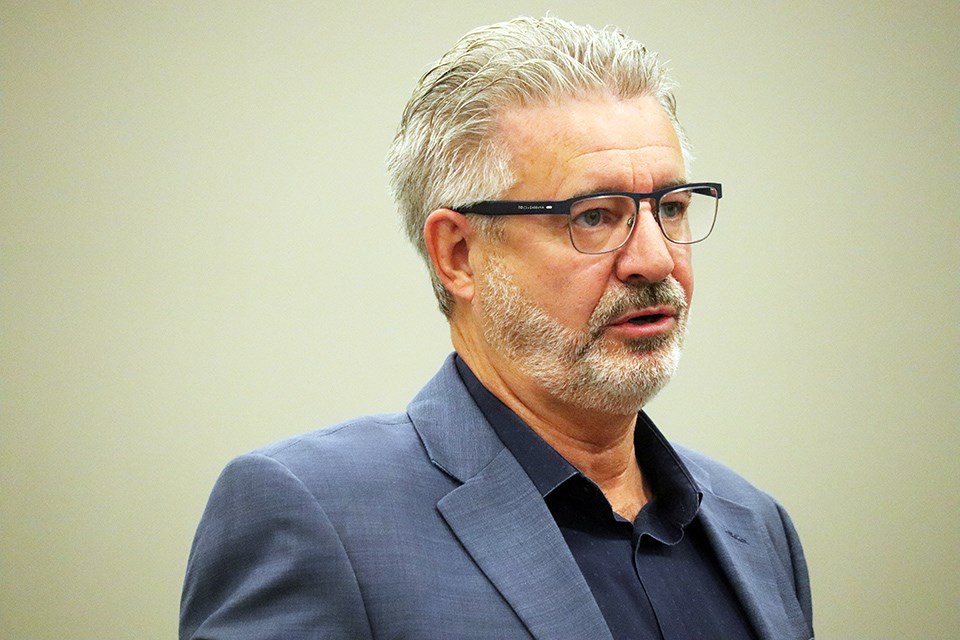Today (Sept. 30) a caucus composed of 13 urban B.C. mayors called on each political party running in the upcoming snap-election on Oct. 24 to commit to addressing key issues throughout the province by introducing a 2020 Blueprint for B.C.’s Urban Future.
As of publication (Sept. 30) between Prince George’s two ridings, there are candidates from the BC Green Party, the BC Liberal Party, the BC NDP and the BC Libertarian Party.
“The COVID-19 pandemic has created unique challenges for B.C.’s urban communities and exacerbated existing challenges related to mental health and substance use, homelessness and lack of affordable housing,” Mayor of Victoria and Co-Chair of the BC Urban Mayors’ Caucus Lisa Helps says in a release.
"We are asking all parties to commit to working more closely with leaders from B.C.’s urban communities to address the issues we face today, while we plan for restored prosperity and growth as we emerge from the pandemic as a more resilient, and equitable society.”
Helps added during a Zoom conference this afternoon that the group has been meeting for the past few months to address challenges and opportunities.
The BC Mayors’ Caucus consists of the following 13 mayors, including Mayor Lyn Hall of Prince George:
- Mayor Henry Braun – Abbotsford
- Mayor Mike Hurley – Burnaby
- Mayor Richard Stewart – Coquitlam
- Mayor Ken Christian – Kamloops
- Mayor Colin Basran – Kelowna
- Mayor Leonard Krog – Nanaimo
- Mayor Jonathan Cote – New Westminster
- Mayor Lyn Hall – Prince George
- Mayor Malcolm Brodie – Richmond
- Mayor Fred Haynes – Saanich
- Mayor Doug McCallum – Surrey
- Mayor Kennedy Stewart – Vancouver
- Mayor Lisa Helps – Victoria
The caucus has called for the following actions for consideration:
- Mental Health, Substance Use and Treatement
- Affordable Housing
- Public Transit
- A New Fiscal Relationship
MENTAL HEALTH, SUBSTANCE USE AND TREATMENT
- Immediately expand the availability of the full range of substance use and mental health treatment and recovery options in our communities for both youth and adults, including appropriate facilities for those with complex needs. We need treatment on demand so people get it when they need it. We need action in months, not years.
- Make the recent public health order regarding expanding the number of health professionals authorized to prescribe safer pharmaceutical alternatives to the toxic drug supply permanent and urge all relevant regulatory colleges to scale up access to safer pharmaceutical alternatives for people at risk across B.C.
- While reviewing changes to the Police Act, consider alternative approaches for responding to mental health and substance use calls in the community on a 24/7 basis.
AFFORDABLE HOUSING
- Accelerate investments to affordable, supportive and social housing on a priority basis, and simplify the funding application process.
- Continue to ensure there is a regulatory and taxation climate that prioritizes housing for people who live and work in our cities, rather than housing as an investment.
- Ensure there is a rental housing system that balances the security of tenure for renters with the needs of landlords.
PUBLIC TRANSIT
- Complete the financial recovery of the projected long-term losses facing TransLink, BC Transit and BC Ferries once the recently announced Safe Restart operating funding expires in late- 2021, so that service levels are maintained, allowing ridership to quickly bounce back through the pandemic and the economic recovery period.
- Redesign the transit funding model that has relied too heavily on regressive transit fares and local property taxes to one that is more resilient and equitable.
- Prepare for a quick return to the transit expansion our cities will need to maintain competitiveness by ensuring that current planning processes are not paused due to the pandemic. Investments in planning studies and developing business cases now will ensure future service expansion and capital investments are ready to go in the rebuilding stage.
- Make the investments required over the coming decade to support BC Transit and TransLink’s ambitious low-carbon fleet plans.
A NEW FISCAL RELATIONSHIP
- Convene an implementation committee comprised of local and provincial government officials to revisit and implement relevant recommendations in the Union of B.C. Municipalities report, Strong Fiscal Futures: A Blueprint for Strengthening BC Local Government’s Finance System.
- Pursue municipal finance reform to provide municipalities with a broader range of sustainable, predictable and reliable funding tools in order to address increasing financial pressures related to a growing asset base, aging infrastructure, climate change, housing challenges and the opioid crisis as per the recommendation from the Select Standing Committee on Finance and Government Services.
“We are using this opportunity, which is this election call, to highlight the challenges we’re finding in our communities,” Helps added during the call.
“Whether it’s mental health and addictions or housing or transit or the need for new fiscal tools, we’ve come together as mayors, not out of frustration, but out of a great hope and optimism of what our cities can contribute to a provincial recovery and much beyond that.”
Voting day is set for Saturday, Oct. 24.

.png;w=120;h=113;mode=crop)

